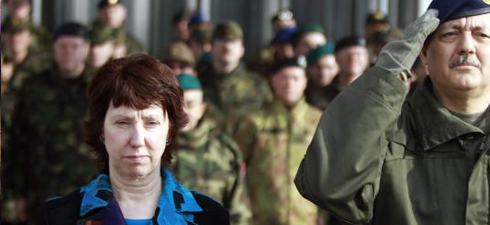First Tunisia, then Egypt — Libya a little later. The European Union misjudged the stability of the regimes, came late and off-balance to the protests, and worse, came to the revolutions without a shred of unity. It has already admitted the first truth. In fairness, the national capitals are more responsible than Brussels for a Mediterranean policy that has proved mistaken, but they have not been held accountable. The second charge, of slow reflexes, is understandable, since prudence is a natural reflection of the diplomat — something even Obama has had to suffer despite having a huge foreign policy machinery at his disposal and the leadership to steer it. On the third charge, divisions within Europe are to some extent inevitable, since each EU member state has its own history and interests, and they are not always shared. Often forgotten, this is important. After all, if unity were the starting point, there would be no need of either leaders or institutions to draw up a common foreign policy, only bureaucrats who would obediently carry it out.
But that is just what the leaders and the European institutions are there for, to create common policies that balance the different interests. The paradox we now confront is therefore readily apparent. For ten years we have been complaining that Europe lacks foreign policy institutions. The High Representative at the time, Javier Solana, had great dedication but few resources and feeble institutions, which obliged him to leap from crisis to crisis, cadging aircraft and carrying out delicate manoeuvres with a midget staff and an operating budget lower than what the European Commission was spending on cleaning its official buildings.
Now, it seems, we are in the opposite situation. We have at last created a foreign ministry for Europe in all but name. We have bestowed upon it a huge budget, its own diplomatic service, and, best of all, all the power that was previously fragmented among three institutions (the Council, the Commission and the rotating presidency) which previously overlapped and were continuously squaring off against each other. With the Lisbon treaty in hand, Europe has its trinity in place, and the High Representative is all-powerful.
All the same, its policy has yet to get off the ground. We may finally have the institutions, but seem to be missing a personality who can lead vigorously from the front.
The Arab revolutions have put Europe’s foreign policy severely to the test. After a year and a half on the job, criticisms of Ashton’s performance (some more fair than others, and there’s a bit of everything) are widespread. The media accuse her of being allergic to the spotlight, of shunning the press and preferring to blend into the wallpaper. Nor does she inspire any enthusiasm in national capitals, rumour has it. At the Extraordinary European Council on Libya, Sarkozy publicly tore strips off Ashton for her passivity – and remarkably, no one stepped up to defend her, not even her compatriot David Cameron. Her defenders argue that Ashton was saddled with Mission Impossible: to do the work previously done by three people and to rule over 27 national egos who all consider themselves more capable than her.
They have a point. And because of that, they all share the blame: Ashton does not want to thump the table — and Sarkozy enjoys doing it. In view of the crackdown that Assad has just launched in Syria and the precedents of Tunisia, Egypt and Libya, Private Ashton is clearly in serious danger of being trapped behind enemy lines.
Hence the urgent need to organise a rescue mission to salvage the remainder of her term, which still has three and a half years to run. Ideally, the team should be made up of the foreign ministers of the 27, who will step forward as volunteers to the rescue and inject some energy into European foreign policy. But are they really willing to step forward? Are they themselves, through their own actions and their own omissions, not the main culprits in the current quandary? Just how far they are willing to go with the Syria of Assad, that other great darling of many European diplomats, will soon give us the answer to these questions.
Was this article useful? If so we are delighted!
It is freely available because we believe that the right to free and independent information is essential for democracy. But this right is not guaranteed forever, and independence comes at a cost. We need your support in order to continue publishing independent, multilingual news for all Europeans.
Discover our subscription offers and their exclusive benefits and become a member of our community now!












